How Your Recruitment CRM Revamps Your Staffing Relationships
May 18, 2016
In the staffing industry, relationship building is a true 360 degree concern. Clients and candidates remain with a staffing partner because of the consistent customer experience they receive. Yet that experience does not happen organically. Behind-the-scenes, recruiting and sales teams use their recruitment CRM to duplicate quality across all relationships.
How does CRM software enhance the quality of staffing relationships? We find that the seamless data integration, advanced scheduling options, and targeted analytics available through the CRM in your staffing recruitment software give the answer.
Centralizing Crucial Data
The staffing industry has grown steadily for years. In fact, Staffing Industry Analysts predicts that by 2017, staffing and recruitment will be a $150 billion industry. Each staffing firm faces a whirlwind of competition while trying to strengthen bonds with clients and candidates. How do they keep outfoxing other staffing firms? By continuing to collect and easily wield quality data.
Lasting relationships are built on mutual understanding. These days, that means copious data collection. With the depth of analytics tools, any nugget of knowledge can be relevant. Using everything from a client’s deliverables and hierarchy to a contact’s schedule and personal facts, staffing firms can prove their engagement and assist their educated decision-making.
Prior to customer relationship management software, data collection had to be strategic. Quick data retrieval and internal sharing was a hairy process with note cards or even Word documents. The latest generation of recruitment CRMs present shortcuts to data collection for effective relationship management.
Mobile CRMs offer the option to retain critical findings by logging information whenever and wherever. Recruiters and salespeople can add their latest client impressions to the recruitment CRM system before they even leave a client’s lobby. Certain CRM platforms even allow the content of texts and emails to be uploaded into their filing system. Best of all, data becomes instantly available system wide, allowing recruiters and salespeople to quickly collaborate on a placement.
Keeping People in Your Orbit
Every staffing firm knows the danger of letting communication lapse. Unfortunately, there’s not an exact formula for how quickly a staffing relationship can fade when neglected. However, communication breakdown can be prevented by a strongly crafted follow-up schedule.
Active job orders and candidate submittals need regular follow-up. In our current market, candidates are being bombarded with recruiters’ offers, especially in the IT staffing industry. Preventing your talent from being lured away is contingent upon how fast you move before competitors realize a candidate’s available. Time between follow-up communications should never break the 48 hour marker (sometimes, even 24 hours is too much). The features of a recruitment CRM help to keep a communication rhythm.
A reliable daily planner function within your CRM software should offer proactive reminders. There should be options for follow-ups after a cold call, arrival check-ins before client-candidate interviews, and debriefings after interviews. Mobile CRM scheduling features even allow candidates to check themselves in on-site or remotely. The better CRMs include customizable planner categories up front and an alarm for when the scheduled event approaches. That way, the tiny components that make up staffing relationships never fall through the gaps.
Analyzing Data for New Strategies
Since customer experience is critical to the continuation of a staffing partnership, how can you tell when the experience is going well? The analytics built into the best recruitment CRMs helps to do more than just speculate. Because truthfully, letting staffing data sit unused is as good as not collecting it all.
There is a full range of data reports that can help strengthen staffing relationships:
- Which clients earn top billing? There are limitations to the number of clients you can work with at once. Giving special attention to top biller clients is not favoritism: it’s just smart business.
- How often are follow-ups made? Salespeople and recruiters can log their follow-ups once completed. This data can give insight into whether enough is being done to retain clients and candidates.
- How many fall-offs happened recently? Reports on fall-offs can sound the alarm when relationship building procedures need to be changed with an individual employee or the whole team.
- Which positions are in the highest demand? Identifying candidates who will be approached by competing recruiters in advance should light a fire and expedite the placement process.
Customization of reports and tracking metrics should be part of the main search criteria for CRM software. Otherwise, when you get to the point of analysis, your firm is pigeonholed into what the vendor thinks you should want.
Finding a Superior Recruitment CRM
In the big picture, creating continuity across staffing relationships requires a CRM tool that excels from the intake of data all the way through its analysis. Moreover, that tool needs to be easily navigable. Who wants to go on a buried treasure hunt every time they need to do some client research? That is why it is important to do thorough recruitment CRM evaluation before ever selecting one.
Our CRM and back office staffing software transforms client and candidate data into easy-to-find assets that augment the recruiting process. Demo Ultra-Staff Staffing Software today to get the feel of what strong usability and analytics look like in practice.
Written by Terri Roeslmeier
 Terri Roeslmeier is the Founder and CEO of Automated Business Designs and has been servicing the staffing industry since 1982 with the latest staffing software innovations.
Terri Roeslmeier is the Founder and CEO of Automated Business Designs and has been servicing the staffing industry since 1982 with the latest staffing software innovations.

